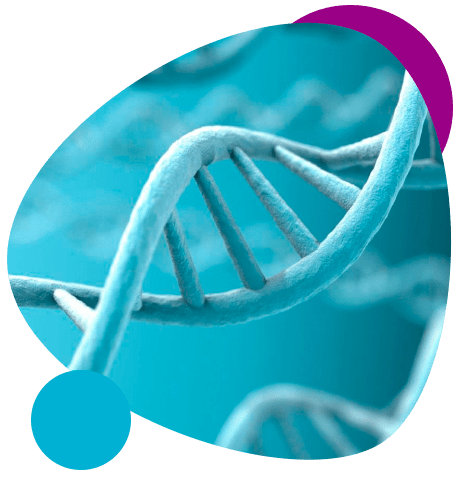Reproductive Medicine
The Transformative Power of Genetic Screening in Reproductive Medicine
in the dynamic and continually advancing field of reproductive medicine, genomic screenings and genetic examinations have become fundamental, revolutionizing our approach to assisted reproductive technologies such as In Vitro Fertilization (IVF).
These scientific advances do more than just deepen our genetic understanding—they provide pivotal insights that play a crucial role in shaping the future of medical practice and patient care.


Advancements and Insights in Genomic Technologies
The advent of these technologies allows for the identification and potential prevention of congenital diseases early in the embryonic stage.
By detecting genetic anomalies that can lead to conditions such as heart defects, Down syndrome, and spina bifida, prospective parents and clinicians can make informed decisions, potentially preventing lifelong challenges and promoting healthier births.
Preventing Genetic Disorders: A Roadmap for Prospective Parents
Furthermore, genetic testing in IVF can identify hereditary cancers, allowing families to understand their genetic predispositions. Knowledge of such risks enables informed decision-making regarding family planning, surveillance, and preventive interventions, which could substantially alter the course of an individual’s life and health.


Improving IVF Success Rates with Genetically Robust Embryos
Another revolutionary aspect of genetic testing is its ability to contribute to longevity by identifying genes associated with long life and disease resistance. This not only benefits the individual but also has significant implications for public health strategies and the sustainability of healthcare systems. By reducing the incidence of genetic diseases and extending healthy life spans, we can alleviate the long-term costs and burdens on healthcare.
Navigating the Ethical and Social Dimensions of Genetic Screening
Lastly, the sustainability of healthy societies is greatly enhanced by these genetic insights. With better preventive measures and enhanced healthcare planning, societies can ensure a healthier, more economically sustainable future where fewer resources are allocated for the treatment of preventable genetic conditions. As we delve deeper into the importance and procedures of genetic testing in reproductive medicine, it is evident that its implications are vast, extending far beyond individual and immediate family health. It influences wider societal layers, and the ethical and economic landscapes, driving us towards a more informed, proactive approach to health and life.

Enhanced Genetic Understanding: Genetic screening and genomics delve deep into our DNA, unraveling the complexities of our genetic makeup. In reproductive medicine, this insight offers prospective parents the ability to be screened for hereditary conditions, thus providing a roadmap for potential hereditary risks to their offspring. For example, organizations like the American College of Obstetricians and Gynecologists (ACOG) and National Human Genome Research Institute (NHGRI) offer resources and guidelines on genetic screening, underlining its importance in preventive healthcare and reproductive choices.
Prevention of Genetic Disorders: The implementation of Pre-implantation Genetic Diagnosis (PGD) and Pre-implantation Genetic Screening (PGS) in IVF processes has been a game-changer. Clinics worldwide, harnessing guidelines from the American Society of Reproductive Medicine (ASRM), have successfully lowered the transmission rates of genetic illnesses. By identifying embryos free from genetic defects before implantation, they significantly contribute to the reduction of genetic disorders transmission, promoting a healthier future for the next generations.
Improved IVF Success Rates: Enhancements in genomic technologies have directly impacted IVF success rates. Through the selection of genetically robust embryos, these technologies provide a beacon of hope for many undergoing fertility treatments. Research published in journals like Fertility and Sterility showcases substantial improvements in treatment outcomes, emphasizing the pivotal role of genetic health in successful pregnancies.
Ethical and Social Implications: The ethical, social, and legal dimensions of genetic screening are nuanced and complex. The European Society of Human Genetics (ESHG), among others, provides in-depth analysis and guidance on managing these challenges. Addressing genetic privacy, consent, and discrimination, they champion for responsible and ethically sound utilization of genetic technologies.

Reducing Healthcare Costs through Preventive Genomics
By preemptively curbing genetic diseases, nations can significantly curtail long-term healthcare expenditures. Resources from the World Health Organization (WHO) illustrate potential healthcare savings through preventive genomics, marking a crucial step towards financially sustainable healthcare systems. This approach not only conserves resources but also redirects them towards other pressing healthcare needs.
Targeted Population Health Management with Genomic Insights
Population health management benefits from genomic insights, allowing for targeted public health strategies and efficient resource distribution. The Centers for Disease Control and Prevention (CDC) employs genomic data to enhance national health initiatives, tailoring interventions to specific health needs and improving overall population health outcomes.


Genetic Diversity and Global Sustainability
Understanding human genetics deeply enriches our perspective on biodiversity and global sustainability. Initiatives like the Global Alliance for Genomics and Health ( GA4GH ) underscore the role of genetic diversity in disease resilience and environmental adaptability. By fostering genetic diversity, we underpin the foundations for planetary health and sustainability.
Enhancing Longevity and Quality of Life through Genetic Mitigation
The potential for enhanced longevity and quality of life is a direct outcome of mitigating genetic diseases. Studies highlighted by the National Institutes of Health (NIH) and World Health Organization (WHO) affirm that reducing genetic disease prevalence is synonymous with better health, longevity, and quality of life across populations. This shift could redefine societal and economic structures by enabling individuals to contribute actively for longer periods.


Conclusion: Balancing Ethics with Transformative Healthcare
The advancements in genetic screening and genomics within reproductive medicine signify a transformative era in healthcare and society. But these advancements necessitate a balanced approach, guided by a strong ethical framework to navigate the moral and societal quandaries they present. By fostering responsible use, we pave the way for a future where technology serves humanity, ensuring health, sustainability, and equity for the coming generations.